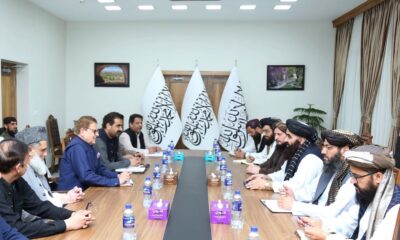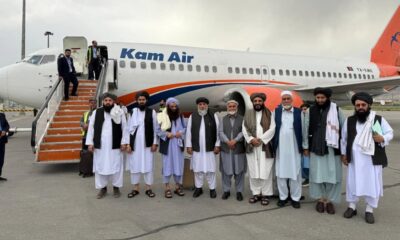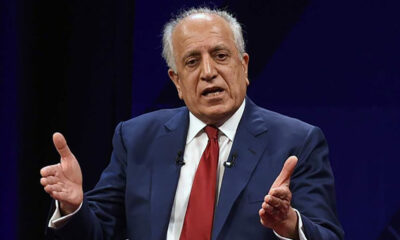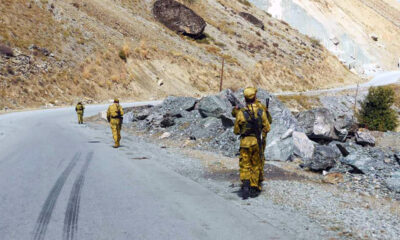Latest News
Watchdog says now is not the time for donor countries to cut back on funding
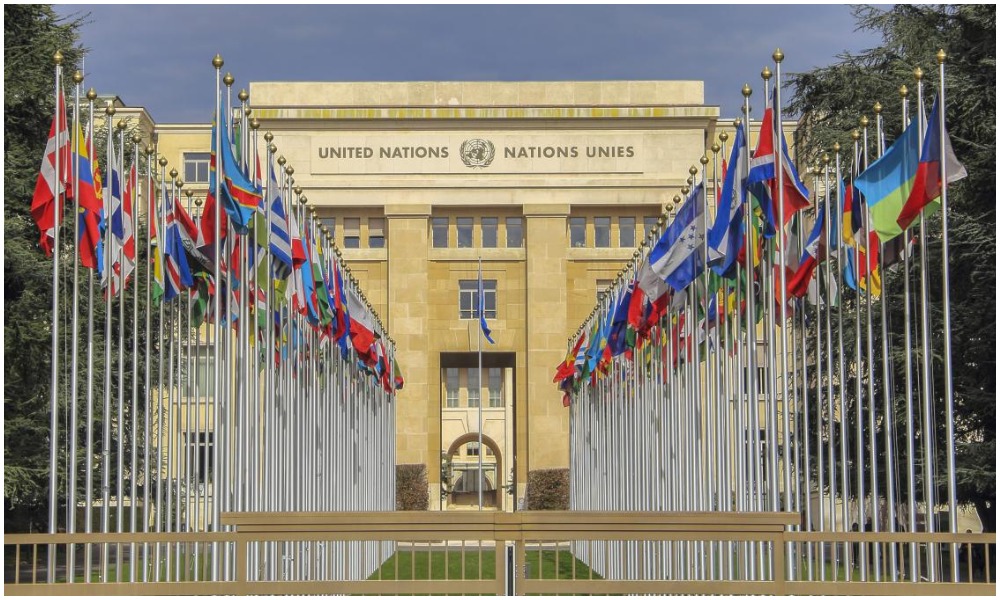
Amnesty International on Wednesday called on the international community to remain “fully committed to protecting and building” on Afghanistan’s fragile human rights gains and to not cut back on funding.
In a statement ahead of this month’s donor conference in Geneva, Amnesty International said Afghanistan is at a critical juncture and that now is not the time for donor countries to cut back on funding.
The Geneva Quadrennial Pledging Conference on Afghanistan, a major donor conference where countries will pledge funding for 2021 through to 2024 will take place on 23-24 November.
The conference will be attended by representatives of more than 70 countries, international organizations and agencies. The conference will also set development objectives as well as secure funding commitments for Afghanistan.
Omar Waraich, Head of South Asia at Amnesty International said: “Afghanistan is at a critical moment. Even as there is talk of peace, violence continues to surge, claiming hundreds of civilian lives, the protection of human rights is nowhere on the political agenda, and COVID-19 continues to run rampant in a country with one of the weakest health systems in the world,” he said.
“International funding has been crucial to the limited but important progress we have witnessed on human rights in Afghanistan over the past two decades, but much more remains to be done. To ensure that these advances are not reversed, the Geneva Conference must maintain a focus on human rights objectives.”
“For its part, the Afghan government must demonstrate its ongoing commitment to defending human rights, safeguarding freedom of expression, and protecting minority groups,” Waraich stated.
As such, Amnesty International has called on participants at the Geneva Conference to set objectives and commit funding to key areas including the rights of women and girls, conflict and civilian casualties, internally displaced people, human rights defenders, and access to justice.
The organization stated that the situation for women and girls in Afghanistan has vastly improved compared to under the Taliban regime. There are now 3.3 million girls in education and women are politically, economically and socially engaged. However, there remain major obstacles and challenges.
Violence against women is rife, the participation of women at all levels of government remains limited and, according to UNICEF, 2.2 million Afghan girls still do not attend school. Meanwhile, two decades of progress on women’s rights are at risk of being compromised through the peace talks.
“The Afghan government and donor partners must build on the hard-won gains made by Afghan women over the past two decades by making clear commitments to support programs to eradicate violence against women, strengthen women’s participation at all levels of government and increase girls’ access to education across the country,” said Waraich.
Conflict and civilian casualties was also a key area of concern and Amnesty International stated that the Geneva Conference is a key moment to reassert the central role that human rights must have in a future Afghanistan.
Waraich said: “Afghan civilians are paying a heavy price in this bloody conflict. The Geneva Conference participants must ensure that the protection of civilians and respect for international humanitarian law is at the centre of the ongoing peace negotiations.”
“The conference should also emphasize that there must be accountability for serious violations of human rights and humanitarian law committed by all sides in the conflict.”
The COVID-19 pandemic is yet another area of serious concern, especially regarding the high number of internally displaced people (IDPs) in Afghanistan – IDPs who are living in densely populated camps with limited access to clean water, healthcare, sanitation and employment.
As pointed out by the organization, social distancing is impossible in the camps and the situation of IDPs has worsened since the COVID-19 pandemic hit Afghanistan.
In line with this Amnesty International also called on participants at the Geneva Conference to set objectives and make funding commitments to alleviate the plight of IDPs, through the provision of safe habitation and equal access to basic services.
Human rights was also a key concern and according to the organization activists are still risking their lives by speaking out.
“The Geneva Conference must push the Afghan government to deliver on its pledge [to safeguard human rights] and make a funding commitment to help roll out the mechanism across the country,” Waraich.
On the issue of access to justice, the organization stated that despite millions of dollars having been spent on improving access to justice for people in Afghanistan, the judiciary and legal system remains weak and unresponsive and perpetrators frequently go unpunished and their crimes uninvestigated.
“The Geneva Conference is a key moment to reassert the central role that human rights must have in a future Afghanistan. To achieve this, it must commit to credible and measurable benchmarks to monitor human rights progress and, crucially, make clear to all parties to the peace talks that human rights are non-negotiable,” said Waraich.
Latest News
Muttaqi voices concern over Pakistan’s forced expulsion of Afghan refugees
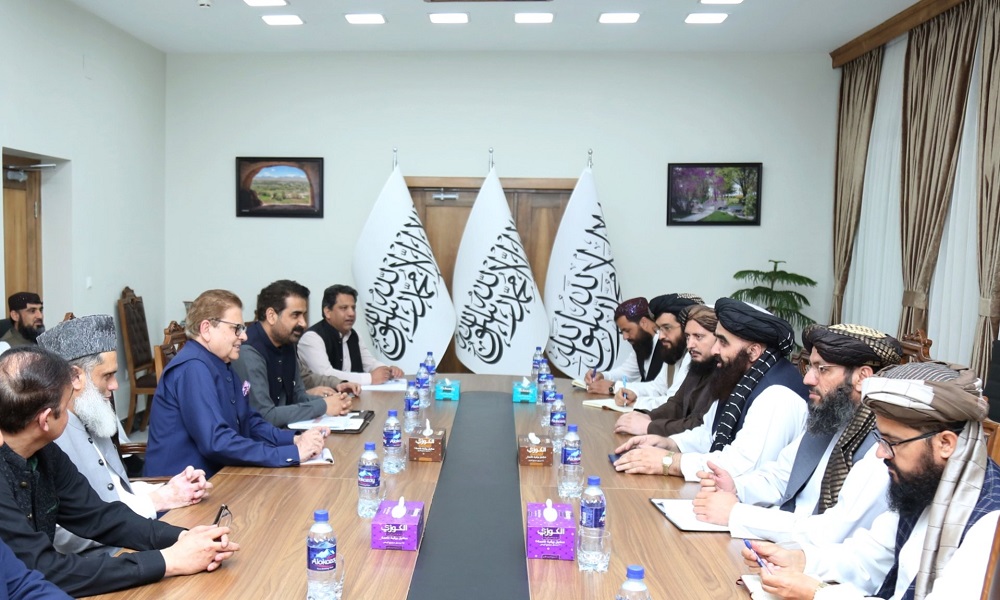
Acting Foreign Minister Amir Khan Muttaqi on Wednesday expressed his deep concern over the state of relations between Kabul and Islamabad during a meeting with Pakistan’s Special Representative for Afghanistan Mohammad Sadiq.
Sadiq, who is leading Islamabad’s delegation, is in Kabul for the 7th session of the Afghanistan-Pakistan Joint Coordination Committee (JCC) meeting.
The meeting comes amid growing tensions between the two countries, with Afghan refugee deportations and skirmishes along the border.
Pakistan, which has seen an increase in security incidents in the past few years, has also repeatedly accused the Islamic Emirate of allowing militant groups to operate from Afghanistan.
Zia Ahmad Takal, head of public relations at the Ministry of Foreign Affairs, said in a statement on Wednesday that Muttaqi “expressed his deep concern over the state of relations between Kabul and Islamabad”, particularly regarding the forced deportation of Afghan refugees.
Muttaqi emphasized that both countries should resolve their issues through dialogue in an atmosphere of mutual trust and avoid actions or statements that may lead to public resentment or provoke emotions.
Sadiq in turn noted that the two neighboring countries share deep ties and should explore ways to resolve the challenges that have arisen.
Latest News
Acting Minister of Industry and Commerce heads to Pakistan
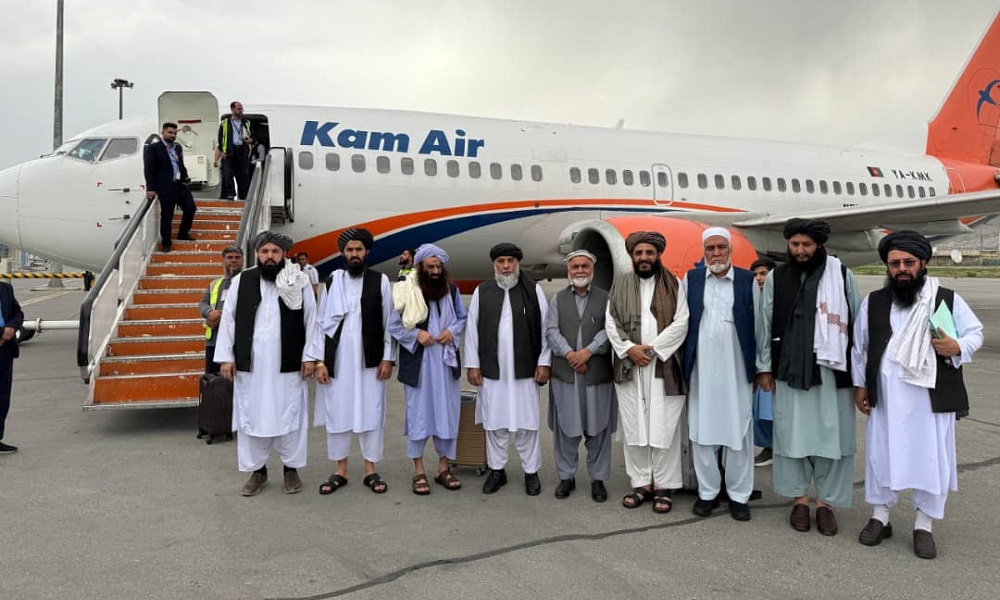
Nooruddin Azizi, the Acting Minister of Industry and Commerce of the Islamic Emirate of Afghanistan, and a high-ranking delegation, has left for Pakistan for talks on various issues.
According to a statement issued on Wednesday, the Ministry of Industry and Commerce stated that the purpose of this trip is to assess and resolve existing obstacles in trade, transit, and transportation between the two countries, as well as to hold discussions regarding the challenges faced by Afghan refugees residing in Pakistan.
The high-level delegation led by Azizi includes representatives from the office of the Economic Deputy Prime Minister, the Investment Facilitation Directorate of the Administrative Office, and the Ministries of Foreign Affairs, Finance, Refugees and Repatriation,
Latest News
Khalilzad says Pakistan might be using migrant expulsions to infiltrate ISIS into Afghanistan
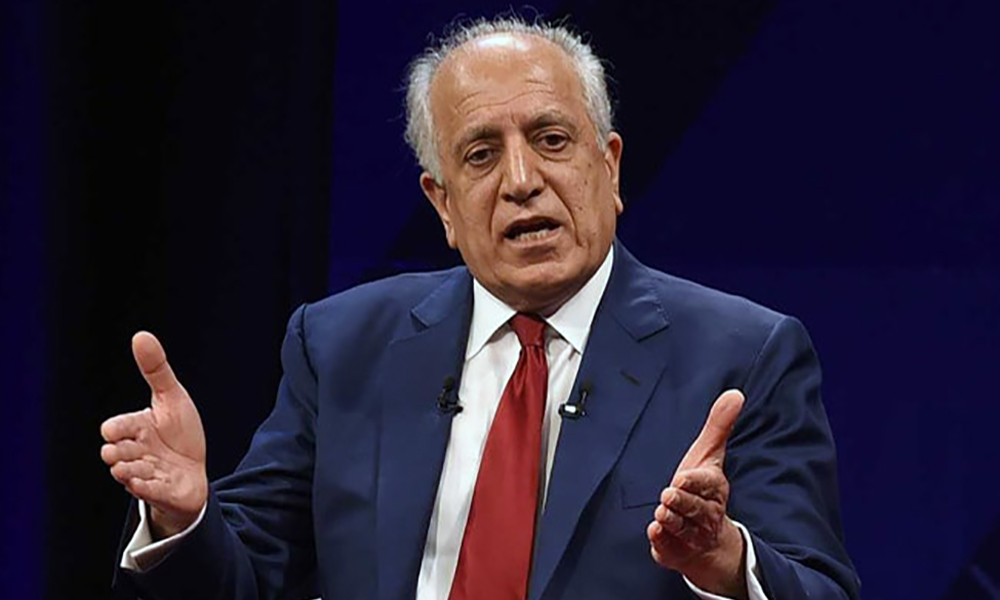
Washington’s former special envoy to Afghanistan, Zalmay Khalilzad, said in a social media post on Wednesday that he is concerned Pakistan might be using the expulsion of refugees as a cover to send in ISIS fighters into Afghanistan.
In a post on X on Wednesday, April 16, Khalilzad said: “Knowledgeable people tell me that they are concerned that the Pakistan establishment might well be using the expulsion of Afghan refugees as a cover to send ISIS terrorists to Afghanistan. I share this concern.”
Khalilzad did not elaborate further, nor did he clarify who the “knowledgeable people” were.
The Islamic Emirate has long been known to fight ISIS and has in the past accused Pakistan of supporting the militant group.
In January, Afghanistan’s deputy minister of foreign affairs said ISIS was operating training centers in Pakistan.
Khalilzad’s remarks come amid intensified efforts by Pakistan to deport hundreds of thousands of Afghan refugees in the country.
Pakistan began deporting undocumented Afghans in October 2023 but following a directive in December, authorities ramped up the deportations from April 1. In the first two weeks of this month over 45,000 Afghans returned.
-
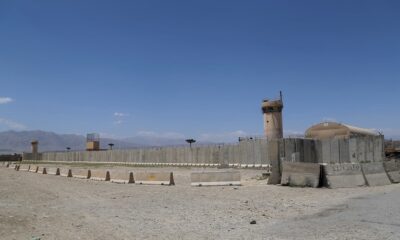
 Latest News5 days ago
Latest News5 days agoNo American military presence in Bagram: US defense official
-
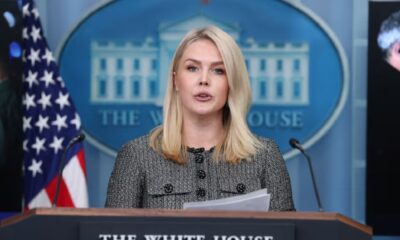
 World5 days ago
World5 days agoWhite House says ‘all hell to pay’ should Iran develop nuclear weapon
-

 Latest News5 days ago
Latest News5 days agoTrump ends protected status for thousands of Afghans, Cameroonians
-

 Latest News5 days ago
Latest News5 days ago‘No one wants to see a nuclear-armed Iran,’ says former US ambassador to Afghanistan
-
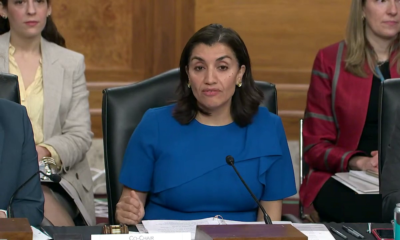
 Latest News4 days ago
Latest News4 days agoUS Senate convenes commission to review early years of Afghanistan war
-
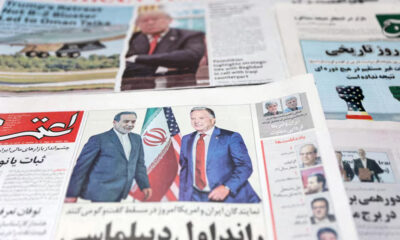
 Regional4 days ago
Regional4 days agoIran, US hold ‘positive’ talks in Oman, agree to resume next week
-

 World4 days ago
World4 days agoTrump says Ukraine talks may be going OK, but there is a time ‘to put up or shut up’
-

 Latest News4 days ago
Latest News4 days ago6.1-magnitude earthquake shakes northern Afghanistan


